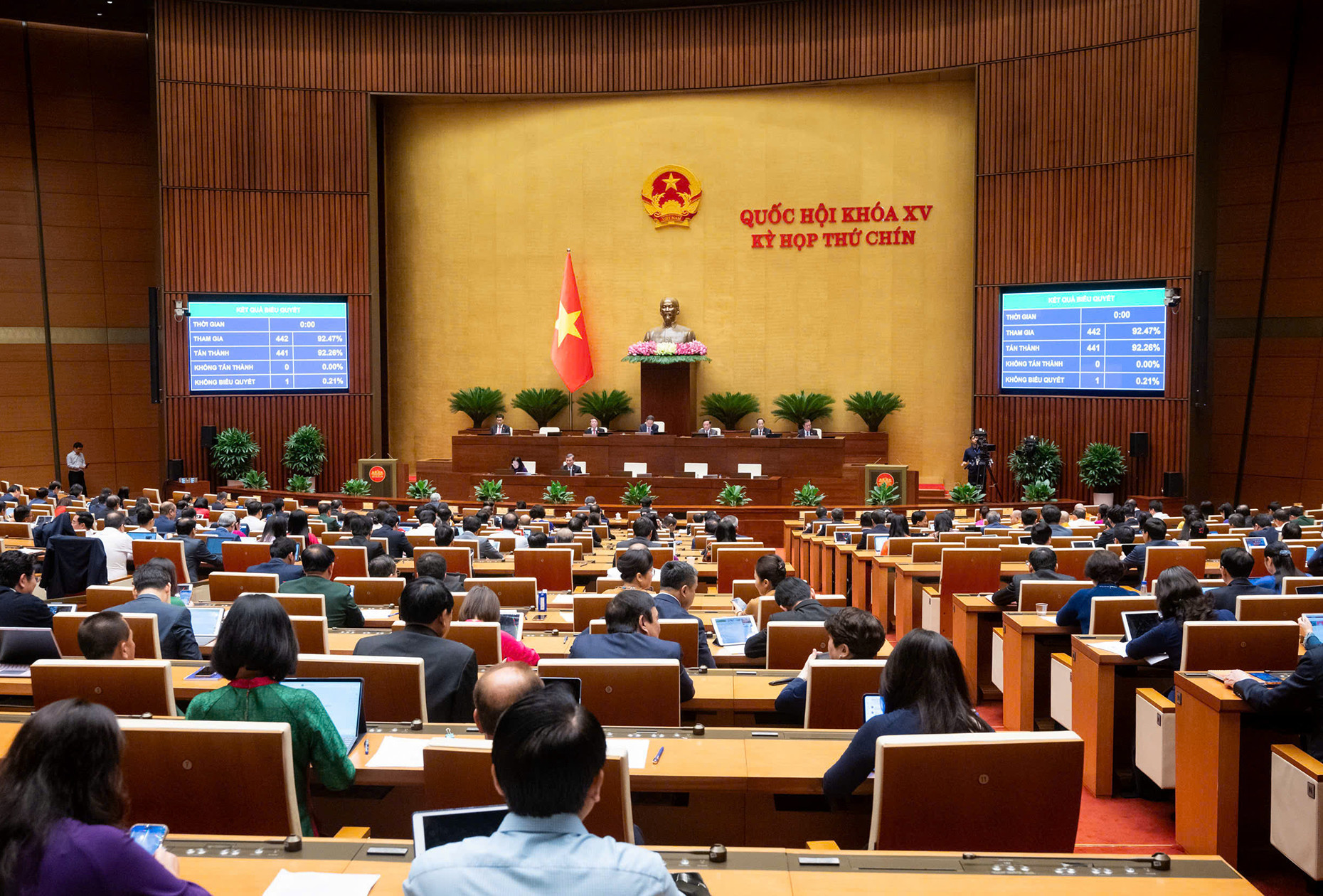
The ST&I law lays the foundation for a sustainable and adaptable national data infrastructure. Photo: VPG
On the morning of June 27, under the direction of National Assembly Chairman Tran Thanh Man, the National Assembly passed the Law on Science, Technology, and Innovation (ST&I).
Effective from October 1, 2025, the law promotes key activities such as establishing technology exchanges, encouraging technology transfer and commercialization, reducing administrative barriers, and strengthening intellectual property protection.
Institutional innovation and proactive governance
One of the law’s major reforms is the shift from pre-inspection to post-inspection, focusing on process transparency, outcome evaluation, and risk management instead of deep initial intervention.
This modern approach aligns with the flexible and experimental nature of the ST&I sector.
The law introduces a “controlled trial” (sandbox) mechanism, a new legal tool that permits the deployment of innovative models, technologies, or policies in a defined, limited setting.
This approach enables advanced technologies like artificial intelligence, blockchain, digital healthcare, and digital education to operate within a safe legal environment before broader application.
It also affirms the principle of protecting scientists and host organizations when they follow legal procedures, even if results fall short of expectations.
This legal safeguard fosters a spirit of initiative, creativity, and readiness to experiment – essential traits in a pioneering scientific ecosystem.
Additionally, the state’s proactive role is reinforced through long-term strategic planning, transparent and flexible resource allocation for ST&I missions, and supportive infrastructure.
The law clearly defines the government's responsibility to provide funding, infrastructure, and a favorable environment for individuals and organizations to effectively implement their innovations.
Impact on the ST&I market development
The law lays a legal foundation for boosting the commercialization of research results and protecting various forms of technology transfer.
It ensures that rights and economic benefits from research results are distributed fairly based on contributions, thereby encouraging active participation from both scientists and enterprises.
Crucially, the law resolves a long-standing issue regarding ownership of publicly funded research results. Instead of requiring additional approvals, the host organization is automatically granted ownership or usage rights.
This significant reform promotes practical application and increases transparency in managing intellectual assets.
The law also supports the development of an ecosystem for commercialization through tools like technology exchanges, intellectual property valuation entities, and technology transfer support centers, bridging the gap between research and business.
Scientists are allowed to directly receive economic benefits from intellectual products, while revenue-sharing ratios are clearly regulated to ensure fair distribution among stakeholders.
Digital transformation and national data infrastructure
The law establishes a digital foundation and a national information system for ST&I aimed at enhancing data connectivity among research organizations, businesses, and regulators. Publicly funded institutions are required to update data regularly.
Private entities are encouraged to contribute information voluntarily and transparently, thereby expanding the open data pool for the research and innovation community.
Minister Nguyen Manh Hung: “Enterprises may propose sandbox trials through the Ministry of Information and Communications.”
Beyond being a management tool, the data infrastructure promotes comprehensive digital transformation across the sector.
The law emphasizes integration, sharing, and synchronization among information systems, facilitating the fast and effective deployment of technological solutions.
By digitizing the management, monitoring, and evaluation processes in ST&I, the law lays the groundwork for a sustainable, adaptable data infrastructure to meet the demands of the digital era.
More than a legal document, the ST&I law is a declaration of development through knowledge.
With its pioneering spirit, the law opens new institutional space, promotes societal innovation, encourages research commercialization, ensures effective decentralization, and links research with market needs.
As Vietnam enters a new development phase, this foundational law empowers the country to accelerate, compete on intellectual quality, enhance internal capacity, and move confidently in global integration.
Thai Khang